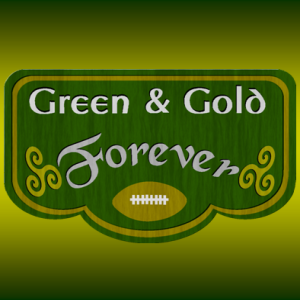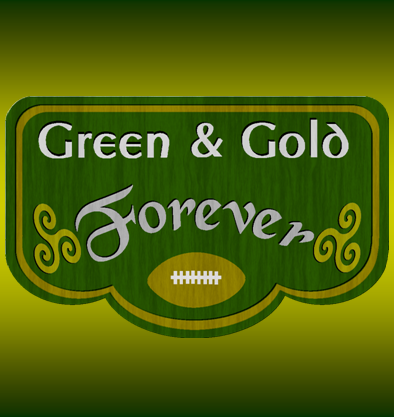Episodes

Wednesday Feb 03, 2016
Fixing 10 Bad Super Bowls 5. Super Bowl XV – January 25, 1981
Wednesday Feb 03, 2016
Wednesday Feb 03, 2016
Erased Super Bowl XV: Oakland Raiders 27 Philadelphia Eagles 10
The 1980 Oakland Raiders were the original team to “get hot at the right time”. They were an unspectacular 11-5 team that made the playoffs as a Wildcard team. To get to the Super Bowl, they would have to win a home game and two road games. Prior to that year, just four teams had ever won two road playoff games in one year. And since the NFL added the Wildcard Round in 1978, the 1978-79 Oilers were the only wildcard teams to even reach the conference championship game. Surely no one was expecting the Raiders to be in New Orleans on Super Sunday. But once the playoffs began, the Raiders could seemingly do no wrong. They scored 27 points in a blowout win over the Houston Oilers and their number two ranked scoring defense. They went to Cleveland and shut down NFL MVP QB Brian Sipe, winning the famous “Red Right 88” game 14-12. In the AFC Championship Game, they went out to San Diego and outscored the NFL’s number one offense 34-27. The Raiders, with their average defense and below-average offense, had beaten the best teams the AFC had to offer and were ready to take on one of the NFC’s best in the Philadelphia Eagles.
Philadelphia was one of the NFL’s young up-and-coming teams. Coach Dick Vermeil arrived in 1976 and built them into the playoff team in just three years. They lost the Wildcard game in 1978, won it in 1979, and returned in 1980 to claim their first division championship in 20 years. Their workmanlike offense, led by QB Ron Jaworski, was in the top 10 in both scoring and yards. But their real strength was on defense where they were 2nd in total defense and number one in points allowed. In the 1980 playoffs, the Eagles convincingly defeated the 1970s two NFC powers, the Minnesota Vikings and Dallas Cowboys, and headed to Super Bowl XV as a favorite to beat the Wildcard Raiders.
Instead, Super Bowl XV turned into the final counterintuitive Raiders win of the 1980 playoffs. Oakland’s mediocre offense moved up and down the field and scored at will on the Eagles' strong defense. Ron Jaworski, who had taken care of the football as well as any quarterback in 1980, threw three interceptions. The Raiders dominated yet another superior team and won their second Super Bowl in five years, 27-10.
In some ways, the Raiders win was great for football, as it validated that a team can win a championship from the Wildcard round and provided championship dreams for all playoff teams in future seasons. On the other hand, these Raiders were the worst Super Bowl champions to date. They did not belong in the company of the NFL’s great past champions. Though it was fitting that this achievement was accomplished by a team called the Raiders. They stole another trophy for their already crowded trophy case and did so at the expense of several hungry franchises who were desperate for their first Super Bowl championship – Philadelphia, San Diego, Cleveland, Houston, and a team that would have loved to have gotten the opportunity to play them.
The Switch: 1980 Atlanta Falcons for 1980 Philadelphia Eagles
While the Eagles got to the Super Bowl by playing two home games at Veteran’s Stadium, they were not the team with homefield advantage in the NFC. They lost that privilege by losing to the Atlanta Falcons in Philadelphia on a last-second field goal in Week 14. When both teams finished with identical 12-4 records, it appeared like the NFC’s road to Super Bowl XV would go through Atlanta.
The Falcons were an interesting team in the late 1970s. They are best remembered for their “Grits Blitz” defense that allowed just 9.2 points per game in 1977. However, their defense would never be that good again. On offense, they were led by former number one overall draft pick QB Steve Bartkowski. He had been largely disappointing in his first five seasons. The Falcons did make the playoffs in 1978 but were not seen to be a contending team. In 1980, the Falcons struggled to a mediocre 3-3 start. Then, for whatever reason, it all started to click. Over their final 10 games, Atlanta posted a 9-1 record. Their defense, which was in the bottom half of the league to start the season, allowed the 2nd fewest points in the NFL down the stretch. Steve Bartkowski finally started playing up to his potential, throwing 22 touchdown passes in the final 10 weeks and finishing with a league-best 31 touchdown strikes. Atlanta’s 12-4 record was best in club history and they would enter the playoffs with homefield advantage all the way to Super Bowl XV.
As luck would have it, the Falcons would fall victim to the biggest flaw of the pre-1990 playoff format. For reasons I don’t understand, teams from the same division were not allowed to play each other in the Divisional Round of the playoffs. Due to the result of the Wildcard playoff game, the second-seeded Philadelphia Eagles got to play the 9-7 Minnesota Vikings. The top-seeded Atlanta Falcons were paid a visit by the 12-4 Dallas Cowboys. The Cowboys were the highest-scoring team in the NFL and could go toe to toe with anyone. The Falcons offense played a fantastic game. Steve Bartkowski had one of the best games of his career, throwing for 320 yards, two touchdowns and notching a 95.5 QB rating. The Falcons took a 24-10 lead into the 4th quarter and looked to close out the Cowboys. Then, their defense reverted to their early-season lackluster form. The Cowboys scored three touchdowns the final quarter, including a 23-yard go-ahead touchdown on a desperation heave from QB Danny White to Drew Pearson with 42 seconds left. The Cowboys won 30-27 and Atlanta’s dream season was over. They would return to their mediocre selves the following season and make the playoffs just once more - during the NFL’s 16 team “Super Bowl Tournament” after the strike-shortened 1982 season. By the time Atlanta would make the playoffs again in the 1990s, all of the pieces of these Falcons would be long gone.
Clearly, when you blow a two-touchdown 4th quarter lead at home in the playoffs, you wasted many opportunities to win the game. Even as the Dallas comeback started, Atlanta still led 27-17 with just under 7 minutes to play. Had they held either one of those Cowboys touchdown drives to field goals, their chances greatly increase. However, if the game plays out mostly the same way, the Falcons still had the ball with under four minutes to play with a 27-24 lead. If the Falcons can control the ball and get a few first downs, they win. Instead, Atlanta went three and out (perhaps in part to a missed Cowboys offsides penalty) and punted with 2:00 to play. The Cowboys drove down and scored the game-winning touchdown. Let’s assume the Falcons make a play in any number of those circumstances and move on.
Once Atlanta wins, they host Philadelphia in the NFC Championship game. While the Falcons had already defeated the Eagles in a tight game in Philadelphia, it would be difficult to duplicate that result. The Eagles’ number one defense should have slowed down the Atlanta attack and made their inconsistent defense vulnerable to their balanced, efficient offensive attack. However, it’s not hard to imagine the Falcons finding a way to win at home in a very tight contest. Jaworski did not play well in the actual 1980 playoffs. Perhaps he continues that trend in this alternate universe and commits a couple of turnovers, giving the Falcons the edge they need to move on to their first Super Bowl.
Improved Super Bowl XV: Raiders vs. Falcons - Evaluating the Matchup
Like every other game they played in the 1980 playoffs, the Raiders would be the underdogs. Atlanta was better than Oakland in almost every area, but they were very vulnerable against the pass with just the 25th ranked passing defense. The Raiders vertical passing attach that had caught fire in the playoffs would likely continue to burn.
While the Falcons would be less equipped than the Eagles to stop the Raiders’ offense, the Falcons were much more capable of outscoring Oakland. They had the 3rd best offense and were in the top 10 in both rushing and passing. Perhaps most important, they were the best in the NFL at taking care of the football. Atlanta’s offense committed the fewest turnovers in 1980. The Falcons would match up very well against the Raiders.
Prediction
The Falcons should have won this game. They had shown to be better than the Raiders in nearly every area. And yet, that had been the case for every opponent the Raiders faced in the 1980 playoffs. The Raiders were not elite in any area except one: forcing turnovers. They led the league in the category, and, as they demonstrated in the real Super Bowl XV, they could take the ball away from even the most cautious teams. They forced no fewer than three turnovers in each of their 1980 playoff games and would have likely done the same against Atlanta. Unlike the Eagles, the Falcons’ high powered offense could have overcome their turnovers and stayed in the game. But in 1980, the Raiders seemed like a team of destiny. Jim Plunkett continues his hot streak, the Raiders defense continues to make big plays, and while the Falcons offense valiantly hangs on, the Raiders ultimately win in an epic shootout. It’s too bad this game didn’t actually happen. Not only would it have provided a great game, but it would also would have been one of the best uniform matchups in Super Bowl history. All things considered, the Falcons would have at least looked cooler losing a lame 27-10 Super Bowl to the Raiders than Philadelphia did. And that’s all that counts.
Oakland 31 Atlanta 27
MVP: Jim Plunkett
Check back tomorrow for Number 4, when we look at a Super Bowl that surprisingly never happened, despite being very close on five different occasions…
Version: 20241125


Comments (0)
To leave or reply to comments, please download free Podbean or
No Comments
To leave or reply to comments,
please download free Podbean App.